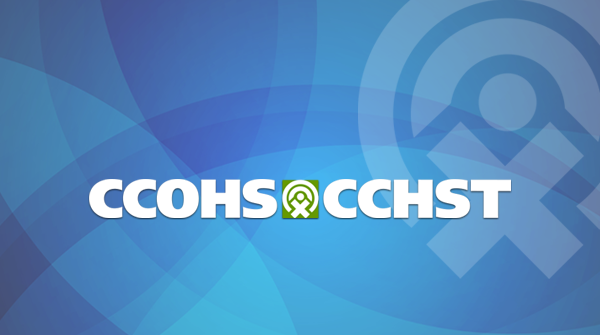The compatibilist proposition is simply that free will is a meaningful concept within a deterministic world.
The proof is this:
P1: A freely chosen will is when someone chooses for themselves what they will do, while free of coercion and other forms of undue influence.
P2: A world is deterministic if every event is reliably caused by prior events.
P3: A freely chosen will is reliably caused by the person's own goals, reasons, or interests (with their prior causes).
P4: An unfree choice is reliably caused by coercion or undue influence (with their prior causes).
C: Therefore, the notion of a freely chosen will (and its opposite) is still meaningful within a fully deterministic world.
Every other customer has their own proclivities that are determined by genetics, environment and life experiences.
Yes. Every customer in the restaurant has their own proclivities, determined, in most cases, by their own prior experiences. They have all tried many different foods over their lifetime. Some customers will go directly to their old favorites. Some customers will want to try something new. Many, like me, will find several options they they know they will enjoy, and will have to decide which one they will order tonight.
In each case, the
determining factors are found wholly within the person themselves, and in no other object in the physical universe. Each person is unique. And it will be up to them, and no one else, to choose what they will have for dinner.
None of them will be forced to choose something they don't want. Each choice will be
free of any such coercion.
None of them will be hypnotized or otherwise manipulated into choosing what they don't want. Each choice will be
free of any such undue influence.
Because their choices are free from coercion and undue influence, each "I
will" will be freely chosen, whether it be "I
will have the steak", or the "I
will have the Chef Salad", or the "I
will have the Buffalo Wings", or ... you get the idea.
And, of course, each choice will also be causally necessary from any prior point in time. It will be the reliable result of each person's own history of prior causes, resulting in who and what they are at the time that they make their choice.
Thus,
P1: the definition of free will, is
satisfied and
P2: the definition of determinism is also
satisfied. There is no incompatibility between them.
Information processing does not mean 'free will.'
Information processing does
not mean '
not free will'. Choosing is information processing. Free will is when the choosing is free of coercion and undue influence.
''Information is everywhere. ... "
Well, yeah. But all the information relevant to this example is found on the restaurant menu. Let's not wander off into traffic signals, college degrees, and other distractions to escape dealing with what is on the table in front of you.
If Lobster was determined by the state of your being in that instance in time, how could you have chosen steak?
Well, I wanted the steak and I also wanted the lobster. And I was certainly free to make that choice for myself. The steak was there on the menu, so it was a
real possibility that I could have the steak if I chose to have the steak. And, for the same reason, it was also a
real possibility that I could have the lobster. But having both of them would be a bit much, so I had to choose between them.
So, let's look into the choosing operation itself, to see how it works. Choosing is a
deterministic operation that inputs two or more options, applies some criteria of comparative evaluation, and outputs a single choice. The choice is usually in the form of an "I
will X", where X is the thing that I've chosen to do.
Choosing
requires at least two options,
each of which I can choose. "I
can choose steak" was true. "I
can choose lobster" was also true. So, I had my two options. Then I began weighing my two options in different ways, imagining what I would experience if I chose the steak, and then imagining what I would experience if I chose the lobster. If I was concerned about the cost, then I may have also compared the price of the steak dinner versus the price of the lobster dinner. If I was concerned about my dietary goals, then I may also have estimated the effect of each upon my cholesterol, or my calories, or my balance of fat versus proteins, etc.
At the end of the choosing process, I would have two things: (1) the single "I
will have the X" where X is either the steak or the lobster plus (2) the single "I
could have had the Y" where Y is either the lobster or the steak.
That's how choosing works. It
always begins with two real possibilities, and it
always ends with a single "I will" and at least one "I could have".
And that is why
P2 defines determinism as: "A world is deterministic if every event is reliably caused by prior events." It would be silly to say that determinism means that "I could not have done otherwise" when every choosing operation always outputs at least one thing that "I could have done".
“It might be true that you would have done otherwise if you had wanted, though it is determined that you did not, in fact, want otherwise.” - Robert Kane
What Robert (and Schopenhauer) overlooks is that we often have many wants and desires at the same time, making it necessary that we choose what we will do about them. Our actions are not controlled by our desires, but by our choices as to whether, when, and how we will go about dealing with that desire.
Choosing fixes the will upon a specific intent. The intent then motivates and directs our subsequent actions. For example, having set my intent to have the lobster dinner, my subsequent action is to tell the waiter, "I will have the lobster, please."
These are all the elements that acted upon you, information that your brain acquired, processed and produced your inevitable - in that moment in time - fixed action/selection.
Well, no, my response is not a passive acceptance of the world's influences driving me willy-nilly wherever it wants me to go. I exist as a living organism, with my own purposes, and as an intelligent human, with my own reasons. So, I can and will push back. I am not merely an effect. I am also a cause.
I was referring to the implication that you could have done otherwise, which is forbidden by the rules of determinism.
See P2. There is nothing there that forbids me from having options to choose from! In fact, it is causally necessary, from any prior point in time, that the restaurant menu will have a list of all of the things that I "can" have for dinner. The fact that,
tonight, I "
can" have any of those items is true, logically implies that,
tomorrow, I "
could have" had
any of those items will also be true.
Of course, it will also be causally necessary, from any prior point in time, that,
tonight, I "
will" have
only the lobster dinner, which logically implies that, tomorrow, I "
would have" had
only the lobster dinner.
Under P2, we may safely say that, given the same circumstance, "I
would not have done otherwise", but it would be
false to claim that "I
could not have done otherwise".
Sorry, but the implication that determinism prohibits "I could have done otherwise" is simply false. Don't blame me. It's built into the logic of the language, a logic that enables us to deal effectively with situations of uncertainty, which if often the case.
That is the illusion of conscious will. Not that we can't think or act, but the means by which we think and act. Agency is the key.
Yes, agency is the key. And that is why the waiter brings me the bill for the lobster, because it is obvious to the waiter who the agent actually is. The question is how the hard determinists have managed to acquire the illusion that agent resides somewhere else.
But, that's how a paradox works. A series of false, but believable, suggestions create a hoax, a con, a self-deception about the nature of the world. Zeno was famous for creating paradoxes.
For example, in the story of Achilles and the Tortoise, the world's fastest runner must catch the world's slowest animal. Achilles, confident that he can do so, allows the tortoise a large head start. Then Achilles begins his run to where the tortoise is. But, when Achilles gets to where the tortoise was, the tortoise has also advanced, farther down the road. So, Achilles takes off again to where the tortoise is. But, again, when he gets to where the tortoise was, no tortoise, because the tortoise had once again moved on. No matter how many times Achilles repeats this attempt, he can never catch the tortoise.
What is the false but believable suggestion that creates this paradox? It "sounds true" but it is really false.

 www.dictionary.com
www.dictionary.com

